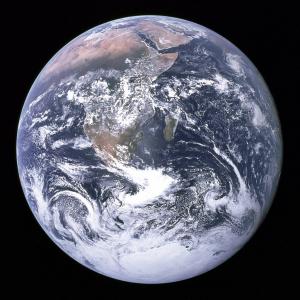 Among the Bible’s more enigmatic words is “wisdom.” It has a very broad range of meanings, which include: skill or ability, as those who are good at certain acts like woodworking, shipbuilding, weaving, even magic, etc.; cunning, as when even tiny creatures show their ability to survive against much more powerful predators—in human beings there may be good cunning (2 Samuel 14:2, the wise woman of Tekoa)) or bad cunning (2 Sam.13:3, Jonadab); practical actions, as a wise person knows when to speak or when to be silent (Prov.17:27-28). Wise persons are characterized as people of: truthfulness, fidelity, kindness, honesty, controllers of appetites. All of these meanings are displayed especially in the Proverbs as well as the later apocryphal book based on the Proverbs, Ben Sira, sometimes called Sirach.
Among the Bible’s more enigmatic words is “wisdom.” It has a very broad range of meanings, which include: skill or ability, as those who are good at certain acts like woodworking, shipbuilding, weaving, even magic, etc.; cunning, as when even tiny creatures show their ability to survive against much more powerful predators—in human beings there may be good cunning (2 Samuel 14:2, the wise woman of Tekoa)) or bad cunning (2 Sam.13:3, Jonadab); practical actions, as a wise person knows when to speak or when to be silent (Prov.17:27-28). Wise persons are characterized as people of: truthfulness, fidelity, kindness, honesty, controllers of appetites. All of these meanings are displayed especially in the Proverbs as well as the later apocryphal book based on the Proverbs, Ben Sira, sometimes called Sirach.
One of the possible choices for a preaching text for the Second Sunday after Christmas, Jan.3, 2021, is Sirach 24:1-12. This book is not found in the Protestant Bible, but was obviously a popular writing of its time. It was written about 180BCE, probably in Hebrew, but we have only a Greek text of the book. It is clear that Sirach based much of his work on the biblical Proverbs; many of the themes of the older text appear here, albeit sometimes with very different emphases. Both books are particularly interested in wisdom, both as a female character in the pantheon of God, as well as a trait that all humans must seek if they are to become all that God wants them to be.
The concern to discover the origin and nature and demands of wisdom is found most particularly in Job 28, a very famous poem on wisdom. After the author describes the many ways that humanity has tamed vast areas of the earth, creating deep mines, planting great fields for the harvest, finding the sources of mighty rivers, it is then said with genuine plaintiveness, “But where is wisdom to be found” (Job 28:12)? If we human beings have such wonderful and increasing facility to harness much of the earth’s power, then why is it so difficult to find wisdom? “Mortals do not know the way to it, nor is it found in the land of the living” (Job 28:13). This latter claim suggests that the author thinks of wisdom’s source in much the same way that Sirach does; it does not emerge from human action, even exemplary human action. “I came forth from the mouth of the Most High and covered the earth like a mist. I dwelt in the highest heavens, and my throne was in a pillar of cloud” (Sir.24:3-4). Note how the very practical interests of wisdom found in earlier texts that say a wise person is a skillful or a righteous one has now become a much more mysterious and lofty image of a being, co-existent with God, who lives where God does, yet like some divine spirit covers the whole earth. The interest of this Joban text, along with that of Proverbs 8 and Sirach 24 is in the person of wisdom and in her origins. Yes, she is distinctly a female figure, sounding on occasion in these texts rather like the consort of God.
But why worry about all this metaphysical speculation about wisdom when we humans are more interested in how we might become truly wise? I suggest that one can trace the arc of a wisdom narrative when examining the many texts where she may be found. At first, the concern was with practical matters of right action, but as wisdom became a trait much sought after, the natural instinct of humans to seek the source of such a trait began to dominate the discussion. And if wisdom is in reality a personified being, emanating from God, covering the earth in her mist, sharing her unique properties with those who seek after her, the search for her becomes important, since she it is who possesses what we all need, namely insight and understanding that can make us successful and righteous on the earth. She, I think, is still what we seek in our own time.
Wisdom is not a word much used in our day. It has become, unless I am mistaken, a rare commodity, confined to a very few. Only those who are judged to be sage, perspicacious, or brilliant are now thought to be wise. There was a time perhaps when the word was reduced to a synonym with “rational” or “sound” or “smart,” though it appears to me that those words do not rise to the level of what is meant by wisdom. It could very well be that we need in the 21st century to find ways to employ this word more often than we do, both to characterize its practical significance for the good life and to name its origins in God. It is time once again, I claim, that all of us join the search for wisdom, not to settle only for the shrewd or sharp or clever, but to desire after brilliance, sagacity, a penetrating insight that marks the truly wise person.
That may sound somewhat elitist in your ears. What is wrong with being smart or rational? Absolutely nothing! But in our time I think we have far more smart people than we have wise ones. I cannot doubt that many of our leaders are smart people, blessed with superior educations and long professional experience. But that hardly makes them wise. The reason that smart no longer equals wise is that there is a decreasing interest in the origins of wisdom; by any definition, wisdom cannot be purely self-generated. That is to say, that one can set out on the search for wisdom, but if that search is confined only to what one can discern or learn on one’s own, what will finally be gained is cleverness or intelligence, not wisdom. Wisdom may only be gained in consort with others pursuing the same thing, with others who recognize and admit that without other seekers there can be no wisdom at all.
This does not mean that all must ascribe to a belief in the Jewish/Christian God to be able to find wisdom; that in itself is an arrogance belying the search for wisdom. I would say, using the Bible’s terminology, that it is crucial to seek after wisdom’s origin outside of oneself before any thought of seeking wisdom is possible. Unless we join others in the search, we are doomed to being smart or clever, but never wise. Is it possible in our day to find wisdom in a world where cleverness is the gold coin of the realm and where wisdom, that higher calling, is too often denigrated as the goal only of the few, those few being snobs or condescending, contemptuous egotists? I suggest that it is time for us to seek wisdom in our day, a communal knowledge that surpasses our easy cleverness, our comfortable smartness. US America in 2021 lacks wisdom, though it be loaded with knowledge.
A good example of this is our stumbling attempts to address the monster of climate change in our time. We have all the facts we need to know that the earth is growing hotter due to our continued and dangerous use of fossil fuels that clog our atmosphere with increasing particles of CO2 and methane, along with other heat-trapping gases, creating rising land temperatures, warmer oceans, melting ice caps, and all the terrible results of those realities, increasingly unlivable land spaces, rising sea waters, more destructive storms, among countless other horrors. We know all the facts, and despite a few ignorant outliers, those facts are what we now live with. What we need now is wisdom, many people who know the facts, but rather than merely absorb and repeat those facts, seek ways to use them as springboards to communal action to alter the realities in ways that can reduce the vast damage we have done to the climate, thus making it possible to live again on our earth in safety.
Listen to what Sirach says about Lady Wisdom: “Come to me, you who desire me, and eat your fill of my fruits. For the memory of me is sweeter than honey, and the possession of me sweeter than the honeycomb. Those who eat of me will hunger for more, and those who drink of me will thirst for more. Whoever obeys me will not be shamed…” (Sir.24:19-22). Such wisdom is far more than being clever or smart; it is rich discernment, enabling one to determine with care the proper employment of all that cleverness and smartness. We need such people, who can discern and synthesize all that we know and direct it to the betterment of the whole society, of all those who inhabit the earth. There is little doubt that genuine wisdom is rare, but when more people pursue it, rather than lesser skills and traits, the more it may cover the earth like a mist. I pray that in 2021 more wisdom may be recognized and employed for all the world, and that with that employment will come a brighter hope and a richer future for all humankind.
(Images from Wikimedia Commons)











